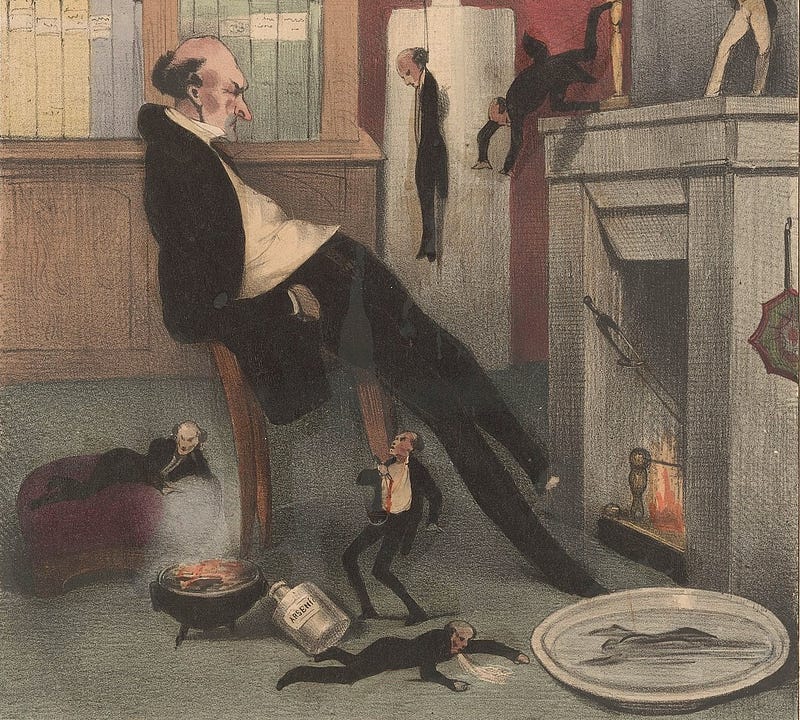The Internet's Role in Fostering Misanthropy: An Analysis
Written on
Chapter 1: Understanding Misanthropy
Throughout the ages, there have always been individuals who harbor disdain for humanity—not just for select people, but for the entirety of human existence, despite being part of it themselves. Typically, it’s expected that, as social beings, we naturally feel affection towards others. Interestingly, the absence of a term like “phileanthrope” speaks volumes. While we do have “philanthropist,” the nuances between these concepts differ significantly.
In recent history, however, we have inadvertently constructed a mechanism that, though not explicitly intended for this purpose, excels at breeding misanthropy. This sinister creation is none other than the Internet.

Section 1.1: The Mechanics of Online Discontent
How does this digital platform perpetrate offenses against our inherent nature and basic decency? The answer lies in the trolls.
The unnecessary and spiteful cruelty, the unfounded assumptions, and the general pettiness are rampant. For instance, mocking my cheerful children’s book because of a journalistic inquiry I made regarding the philosophical basis (or lack thereof) for masking protocols? Really?
Then, attempting to incite a virtual mob against me for that perceived offense? It feels reminiscent of an inquisition.
Subsection 1.1.1: The Desire for Retaliation
Sometimes, I fantasize about being able to launch my fist through the digital realm and have it land squarely in the face of some random troll hiding out in their parents’ basement.
Section 1.2: The Digital Eden We Lost
We had the potential to create a digital utopia, a clean slate for a fresh start. Yet, we chose instead to fabricate and disseminate digital maladies and invasive elements.
What prospects does Zuckerberg’s eerie metaverse hold? It’s rapidly devolving into an environment that repels women, necessitating bizarre features like “turn me into a fire-breathing dragon” for protection. Apparently, no one foresaw this glaring need. After all, all technological advancements are supposed to be inherently beneficial, right? If only that were the case.
Chapter 2: The Spread of Misinformation
In the video "Eugene Ryabchenko - Monument of Misanthropy - How to Make a Killer," we delve into the nuances of how online interactions can lead to a broader disdain for humanity, exploring the psychological impacts of trolling and negativity on individuals.
The second video, "Aristic - Misanthrope (Official music video)," presents a creative interpretation of misanthropy, showing how societal interactions can foster a sense of isolation and disconnection.
The pervasive spread of misinformation, exemplified by movements like QAnon, underscores the reality of our current digital landscape.
Section 2.1: The Banal and the Trivial
The compulsion to instantly share every mundane meal or trivial thought on social media—each shower thought transformed into a half-hearted tweet—has reached absurd levels. People are even risking their lives for the sake of a selfie. What drives this behavior? Is it a misguided offering to the digital gods?
And yet, despite these challenges, I persist in utilizing the Internet for what I believe to be its noble purpose: the hope of uniting humanity through the exchange of knowledge and ideas. This aspiration provides enough justification to endure the less savory aspects of online life.
For in the vast expanse of the Internet, much like life itself, the only pressing question remains: as Camus would say, what keeps you from switching off? That, ultimately, is the essence of meaning.

Colby Hess is a freelance writer and photographer based in Seattle, and the creator of the freethinker children's book "The Stranger of Wigglesworth."
If you’re discovering Medium for the first time and appreciate the content, consider supporting this author and others by subscribing here.